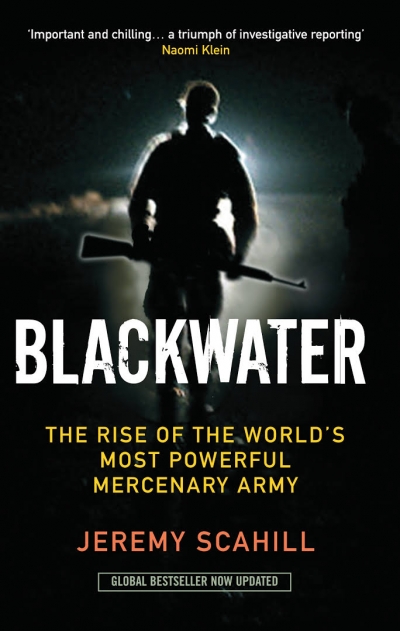



It was in December 2006 that the Ethiopian army – with the US’s military and financial support – invaded Somalia and paved the way for the expulsion of the Union of Islamic Courts (UIC) and its replacement by the clan-based interim government (IG). Now it is once again pouring its troops into Mogadishu, the capital of Somalia, to prop up the IG (which has foundered as a result of a dispute between its president, Abdullahi Yusuf Ahmed, and prime minister Ali Mohamed Ghedi) and to prevent the UIC from seizing power.
One can imagine the furore that would erupt if a Muslim group were to launch a "Judeo-Christian Fascism Awareness Week" on American university campuses and then circulate a petition asking people to sign; those refusing to do so would be accused of supporting ‘Judeo-Christian Fascism’. Something similar took place for a week at nearly 200 American university campuses from October 24 but Muslims, not Jews or Christians, were the targets of this vicious campaign.
For those who spend time observing and analyzing the US’s policy toward Iran objectively, it is commonplace to point out that there always seem to be two entirely different trends to developments, which point in different directions and yet maintain an uneasy co-existence. This understanding is based on both what is happening now with regards to Iran, and parallels with what happened a few years ago, in the build-up to the American invasion of Iraq in 2003.
The imperialist monster is disrupting its own international order. Even the laws of its own heartland are no longer the rules that are supposed to govern its activities. The United States has been trying to jump-start a worldwide diplomatic initiative that will result in military action against Islamic Iran by ignoring the findings of the International Atomic Energy Agency (IAEA), and by forcing European and Asian governments to line up with US strategy vis a vis Islamic Iran.
For a little while last month, as Iranian president Mahmoud Ahmadinejad prepared to address the American people in a series of media opportunities and a high-profile speech at Columbia University during his visit to New York to address the General Assembly of the UN, it appeared that we were back in the days when former Iranian president Mohammad Khatami was championing “dialogue between civilizations”, to the delight of Western liberals who hoped that the “reformists” might bring Iran back into the West’s sphere of influence – their definition of civilization.
King Mohammed VI, who succeeded his father in 1999, has adopted a multi-party political system that ensures that no one party can secure a majority clear majority of seats in parliament: the result is always a government consisting of a coalition of rival parties. This coalition is much easier to control, and it is in charge of a parliament with insignificant powers. Under the current rules, the king also has the right to appoint the prime minister and four ministers with powerful portfolios, without any reference to the weight of their parties in parliament.
What is the key constituency whose support all rulers of Pakistan desperately seek and need? Considering that Pakistan is looking forward to a supposed return to democracy, one might be forgiven for thinking that the answer to this question lay somewhere among Paksitan’s long-suffering people. Alternatively, bearing in mind the role that the military has played in politics for much of Pakistan’s 60-year history, thoughts might turn to the army and the officer corps.
The last thing a Muslim country like Somalia – which has been in the grip of turmoil and lawlessness for 16 years and is now under occupation by Ethiopian and US forces – needs is intervention in its turbulent affairs by Muslim governments, such as Saudi Arabia and Egypt, that are allies of the US and back its anti-Islamic programme in the Horn of Africa. Yet that is exactly what took place in mid-September, when three top leaders of the so-called Somali interim government (IG) and 300 clan heads (warlords, most of them) gathered in Jeddah and signed a “national reconciliation pact”, as the minority accord was presented.
Blackwater: the rise of the world’s most powerful mercenary army by Jeremy Scahill. Nation Books, New York, 2007.Pp: 464. Hbk: $26.95.
Iraqis have become victims of violence in many different circumstances since the American invasion of the country in 2003. Many have been victims of sectarian violence between the Sunni and Shi‘i communities, in which Shi‘i religious institutions and occasions have been particularly targeted by Sunni militants. Few, however, could have anticipated that the Shabaniyah festival in Karbala on August 28, to mark the anniversary of the birth of the twelfth Imam, Muhammad al-Mahdi, would end with over 50 people killed in fighting between Shi‘i gunmen and Iraqi authorities, sparked by the heavy-handed security arrangements in the city.
When Hizbullah drove the Israeli military out of southern Lebanon in August last year, winning a stunning victory in a war by which the US and Israel had hoped to destroy Lebanon’s main Islamic movement and secure control over the country, it was a defeat not only for Israel but for the US as well.
The United States regime, never shy about showing its zionist colors, has come out swinging again; this time, its target is the Islamic Revolutionary Guard Corps of the Islamic State in Iran, which it plans to brand as a “terrorist organization”. Of course, the politicians in Washington are free to say whatever they want – thank God it’s a free country, with freedom of speech and all that. The thing to notice, though, is whether such “made in Tel Aviv” statements are serious policy or simply political rhetoric.
Like a spoiled child that throws a tantrum when it cannot get what it wants, the US government is threatening to place the Islamic Revolutionary Guards Corps (IRGC) of Iran on the list of “terrorist” organizations unless the UN Security Council agrees to tougher sanctions against Tehran. The idea is so preposterous that even Washington’s friends have baulked. How can an important arm of government be described as a “terrorist” organization, they ask incredulously.
The Loya Jirga, or grand assembly of tribal elders, is the traditional Afghan way of discussing and resolving differences, but there was something very odd about the one held in Kabul from August 9-12. True, large amounts of food that (including rice, lamb kebabs and other Afghan delicacies) were served with typical Afghan hospitality, but the jirga was not entirely an Afghan affair. This was partly because it brought together tribal elders from both sides of the Afghan-Pakistan border, which is something of a novelty with potentially grave consequences for the future of Pakistan if it is not handled carefully.
The “guilty” verdict handed down to Jose Padilla and two other defendants (Adham Hassoun and Kifah Jayyousi) on August 16 by a court in Miami is both bizarre and revealing. US government spokesmen hailed the verdict as a major victory in the war on terror, despite the fact that Washington had done everything in its power to prevent the case from ever being heard in a civilian court.
The fact that the US has suffered a massive defeat in Iraq is no longer disputed by any but the most slavish apologists for the Bush regime. As the reality of the US’s position first became apparent, many Western commentators went through a process of retroactive redefinition of the justifications and objectives of the war, to try ways of making the war look less disastrous that it actually is. Now few even try that.
One of the things we try to do in this column is to confront false impressions head-on. This month, we address the myth that America is trying to “spread democracy” in the Islamic East, although the use of this argument has been declining in almost perfect proportion to the increasing military failures of the armies of the US and its allies – particularly zionist Israel – wherever they have tried to pursue their interests through war. Listen to the speeches of the highest officials of imperialism in America, and the change of tone is inescapable.
Perhaps never before in history has a self-declared superpower fallen from glory as precipitously as has the US. In less than 20 years it has gone from a hyperpower to being a spent force unable to deal even with such backward societies as Afghanistan and Iraq.
American Fascists: The Christian Right and the War on America by Chris Hedges. Pub: Free Press, New York, 2007. Pp: 272. Hbk: $25.00
That the world is a nasty place is not in doubt; what is seldom admitted is the depth of the plight of the oppressed, especially Muslims, and the level of hypocrisy that passes for the rule of law and international order. The militarily powerful oppress and terrorize the weak under the guise of fighting “terrorism”, while the rich exploit the poor in the name of progress.


